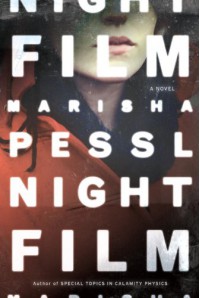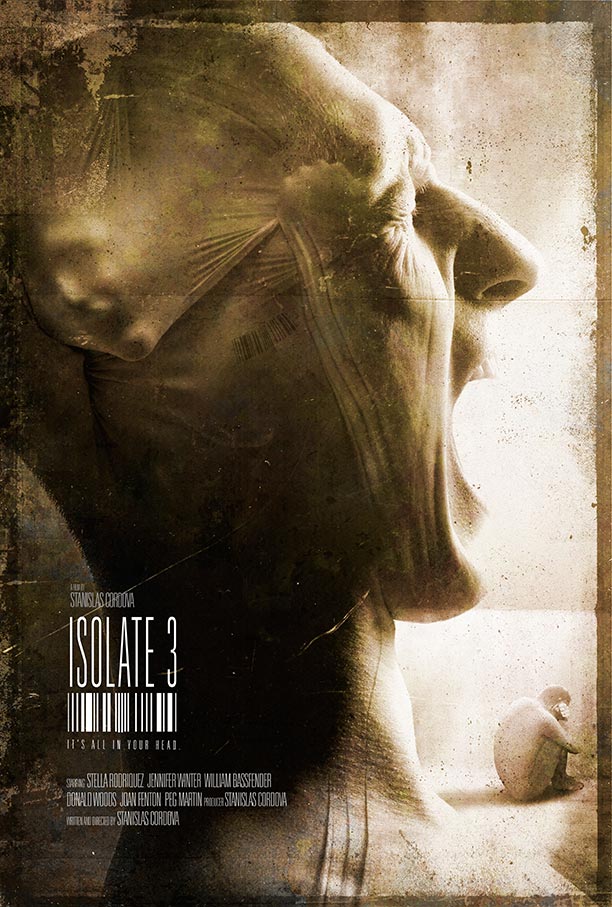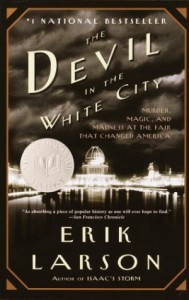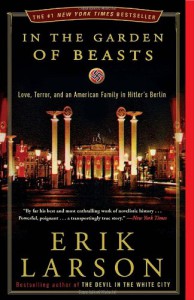Book Goodies
The act of writing always creates something of value. When I'm reading, it is the various manifestations of that inherent and powerful value that I'm looking to capture and share with my fellow book lovers.
From humble days as a bookseller in Colorado, I now live in NYC and work for one of the big publishing houses. I'm always reading a huge variety of books, but you're bound to find more reviews on titles that might not be on every bookstore's shelf quite yet!
And I must also say that it is immensely important to support independent bookstores. Definitely consider shopping with your local bookshop if you don't already!
If you're looking for one then check out the great store I used to work at:
oldfirehousebooks.com
My Annual Summer Thriller

This book found its way to me after a co-worker raved about it. Scott McGrath along with bad boy Hopper and wannabe-actress Nora find themselves seeking the answers to the several mysteries opened up by Ashley Cordova's death, which is presumed to to be a suicide. The gang doesn't quite buy that easy explanation, so naturally, they start to dig. Ashley's father, Stanislas Cordova, is a horror director who has created a body of work that's captivated people all across the world. This guy is supposed to be like Alfred Hitchcock juiced up with more horror than can possibly be imagined. His films have created cults, and people find themselves obsessing over how messed up this guy's stories are. Cordava is also reclusive man, so this piled next to his taste in film quickly creates questions about the role he has played in Ashely's life and possibly in her death.
It's hard to say too much because this one really needs to unfold as you learn more and more about the circumstances of the Cordova's lives, but there is some fun stuff with black magic and horror in here. McGrath is probably one of the worst investigative journalists around, but it made him slightly endearing to me. Hopper and Nora also seem to pick up his shortfalls, so combined, the three characters are like one functional investigator.
I tend to not read books of this genre often, but I always make a good effort with thriller/mystery once a year so I can have at least something to recommend to customers at my bookstore. Last year's pick was "In the Woods" by Tana French, and I must say that "Night Film" is a much more interesting read. There are also several bits of mixed media in the book, which at first I thought would annoy me, but they are actually intriguing. Check this one out if you're in the mood for a page turner. The very ending could have been a little better, but I like to imagine that the story actually concluded about 25 pages sooner than it did.
That being said, here is a cool poster for one of the fictional Cordova films in the book. Pretty neat, huh?

 1
1
10 Musicians Who Should Really Write Novels
I would read a novel by Mr. The National. I love The National.
Mary Kate McDevitt knows what's up.
 2
2
They're all so young!
Buzzfeed.com now has a section of the website dedicated entirely to BOOKS. F*$K YES!!!!!!
Today I became bold. I deleted my Goodreads. I took it down like Katniss shooting at... well, anything. 
It's quick, but it's good.

It’s hard to call this a novel, but the cover does claim it to be a “novel in dramatic form,” so I’ll just go along with that. You’ll find your classic bits of sparse punctuation and depressiveness in this work. It’s a very quick read that is essentially a powerful and complex conversation between the two characters, Black and White. There are a few ways to interpret this choice of naming, but to make this summary easy, one is a stubborn white man, and the other is a stubborn black man, which keeps the conversation tense and intriguing.
The setting is Black’s apartment. It is quickly revealed that White is suicidal, and Black, as a man of God, takes it upon himself to converse with White to change his mind about living. There are a miraculous number of topics covered in this brief novel of dialogue. I actually enjoyed it very much. Several times I reread various passages and found myself thinking in new ways. For example, their discussion on religion felt honest, and it actually had me considering a few new perspectives in areas that have felt very solid and settled to me in the past.
McCarthy isn’t a man known for writing in abundance, but I still wish this had been longer. I felt very caught up in it. The ending could only go two ways, but I’m not sure that I felt ready for it when I got there. The conclusion honestly hurt my opinion of the book. I hoped for an ending as fulfilling yet ambiguous as John Carpenter’s film, “The Thing” (yeah, I know that sounds a little ridiculous but I can think of no better comparison for the conclusion I wanted), but that just wasn’t there for me. Still, this is some of the better dialogue I’ve read in a while, and I do love my dialogue. A whole novel of dialogue feels great, which makes me wonder why I don’t read plays more often. Maybe it’s time to start. Point of the reviewing being that this one is worth a read.
 1
1
Can you judge a book by its gendered cover?
Stuff Mom Never Told You has a great episode out about the complicated relationships between gender, book jackets, publishing, marketing, and the role of gender in 'literary' books. Give it a listen!
 2
2
 1
1
In the minority

Erik Larson is coming to our little town of Fort Collins, Colorado this November. I work on the committee that puts together our community read, which ended up picking Mr. Larson for our 2013 author, and as a result I've been starting to read through his body of work. We found out that he'll be focusing on "In the Garden of Beasts," and this ended up being to the dismay of most of our community as many hoped to learn more about his notorious National Book Award finalist, "Devil in the White City."
I have now read ITGOB and DITWC and can confidently say that I favor "In the Garden of Beasts." With this preference, I am certainly a part of the committee's minority group who favor ITGOB. From the most objective point of view I can muster, I believe that the content of "Devil in the White City" really is more worthy of being written about than the not overly well known American Ambassador of ITGOB, William Dodd. DITWC takes you into a world that you can't believe you didn't know more about. In those pages you learn about belly dancing, architecture, the invention of countless things like the ferris wheel, cracker jacks, shredded wheat, etc. It is mind blowing what a big deal the Chicago World Fair was, and on top of that, the details of it are perfectly balanced by the horrors of H.H. Holmes, the so called "devil" killing several people in his house of death. It really is a hell of a book, and I enjoyed it. Despite all of this, I find myself more attached to the subtlety, etiquette, and finesse of the ITGOB story. It felt like reading about a class of celebrities trying to navigate their way through choppy social waters, and the part of me that likes things like "Pretty Wild" and "The O.C." I simply loved it.
Both books are great and I would recommend them highly. Erik Larson has got it together and I look forward to his other titles.
Random House and Penguin now the world's largest consumer book publisher.
The last details in the merger between Random House and Penguin were finalized on July 1st, creating the largest consumer book publishing company in the world.
The new name will be "Penguin Random House" though I was hoping for something like "Random Penguin" or just "Penguin House."
Here is a press release with the details on the merger and a list of the fiefdoms handed out to the various lords and princes who will rule over 10,000 employees, 15,000 titles and 250 imprints. That's a big kingdom to run.

The Stubborn and Ignorant 1930s (but I kind of get it).

I am honestly surprised at how much I ended up enjoying this book. Part of me suspects that it is because I secretly want to be a history buff and the other part of me is thinking that Erik Larson is just one hell of a writer. This book gives us the story of William Dodd as the American Ambassador to Germany during the rise of the Third Reich (1930s). It is a period that isn't focused on as heavily as World War II itself, but I found this book endlessly fascinating.
One thing that struck me is how unwilling EVERYONE seemed to be about believing that Germany was preparing for war. The government needlessly persecuted, upped weapons manufacturing, and suppressed the media. These apparently didn't qualify as tell-tale signs of irresponsibility and hostility at the time, but I can kind of see why. Most people probably wouldn't view Germany as a country that could put together a powerful and threatening force after how close World War II ended up being to World War I. They were basically a country that owed everyone a ton of $ and on top of that they had lost their pride and dignity. Despite all of that, though, there were certainly places in this history where SOMEONE couldn't ignore what was being done. Oh wait, there were people that noticed, but there were ignored by the people with the power to do anything about it.
Back to my thoughts on the story as a book, I felt that Mattie Dodd and Bill Jr. didn't get their deserved time in this book. It is quite possible that they just didn't do anything during their time in Berlin, and all of the noteworthy activity was left up to Dodd senior and the frugal, party-going Martha, but I would have still been interested in getting to know more about that part of the Dodd family.
My other small criticism is that I would have liked to see a little more of Dodd's time as an ambassador. The book focuses heavily on the beginning of his services and then sums up several years in the last dozen pages.
I would recommend this book and I'm heading straight to another Larson title now that I'm done with this one.
 1
1
Adults can read some fun fairy tales too.

This one took me much longer to read than I expected. It only clocks in at a a little over 160 pages, but I never found myself fully immersed in the tale. We find our selves with a man attending a funeral who is also remembering a particularly odd series of events that took place in his youth. He meets the girl at the end of the lane, Lettie Hempstock, and so the adventure begins. They vanquish odd creatures and through their time together we get to see an entire range of myth. There is great interaction with the designated "flea" called Ursula. She is more or less this weird mythical creature that acts like she is lending everyone a hand, but she is really just screwing everyone over. Also of note is how much I cringed at the worm-in-the-foot scene. Really got to me, and it felt like solid Gaiman writing.
This book is a fun time and a nice one to mix in with your other reading. It really won't take long if you can focus for a few hours and it is enjoyable. Not anywhere near my favorite Gaiman, and in all honesty, I probably will find this one fading into my memory fairly quickly. It has some good points, but I just can't imagine I'll recall much of this story 10 years down the road. However, it might end up more memorable since I'm directly calling it out in this post. Guess we'll see.








